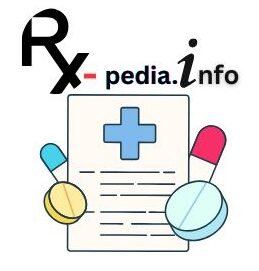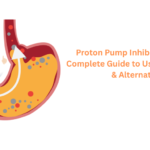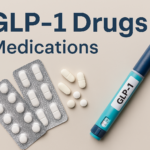Table of Contents

I. Introduction
- COVID-19, caused by the SARS-CoV-2 virus, is a highly contagious respiratory illness that emerged in late 2019.
- Its impact on adults has been profound, leading to millions of infections and significant mortality worldwide.
- The disease can manifest in a range of symptoms, from mild to severe, and can lead to complications such as pneumonia and long COVID, where symptoms persist long after the initial infection has resolved.
- Understanding COVID-19 is crucial for effective management and prevention strategies.
- Recognizing COVID-19 symptoms in adults is vital for timely intervention. Early identification can help mitigate the spread of the virus and reduce the risk of severe health outcomes.
- Adults, particularly those with underlying health conditions, are at increased risk for complications, making awareness of symptoms essential for both personal health and public safety.
II. Common COVID-19 Symptoms in Adults
Fever
Fever is one of the hallmark symptoms of COVID-19. It typically presents as a high temperature or chills, indicating that the body is fighting an infection. Adults may feel hot to the touch on their chest or back, even if they do not measure their temperature.
Cough
A new, persistent cough is another common symptom. This cough may be dry or produce mucus and often leads to discomfort in the chest. It’s important to note that a cough can also indicate other respiratory infections, so context matters.
Shortness of Breath
Shortness of breath can signal a more serious progression of COVID-19, potentially indicating pneumonia. Adults experiencing difficulty breathing should seek medical attention promptly.
Fatigue
Extreme fatigue is frequently reported by those infected with COVID-19. This symptom can last for weeks and significantly impact daily functioning.
Headache
Headaches associated with COVID-19 can vary in intensity and may be accompanied by other symptoms like fever or fatigue.
Sore Throat
A sore throat is often noted as an early symptom of COVID-19. It may feel scratchy or painful, similar to other viral infections.
Runny Nose
While commonly associated with allergies or colds, a runny nose can also be a symptom of COVID-19, particularly in newer variants.
Muscle or Body Aches
Muscle pain or body aches are common complaints among those infected with COVID-19, contributing to overall feelings of malaise.
Diarrhea
Gastrointestinal symptoms like diarrhea have been reported in some cases and may occur alongside respiratory symptoms.
Nausea or Vomiting
Nausea or vomiting can also occur and should be monitored as part of the overall symptom profile.
III. COVID-19 Symptoms in Adults with Underlying Health Conditions
Cardiovascular Conditions
Adults with cardiovascular conditions may experience exacerbated symptoms if infected with COVID-19. Symptoms like shortness of breath and fatigue can be more pronounced due to pre-existing heart issues.
Respiratory Conditions
Those with chronic respiratory conditions such as asthma or COPD are at heightened risk for severe COVID-19 symptoms. They may experience increased difficulty breathing and require more intensive management.
Diabetes
Diabetes can complicate the course of COVID-19. Individuals with diabetes may face higher risks for severe illness and should monitor their blood sugar levels closely during infection.
Mental Health Conditions
COVID-19 can also impact mental health significantly. Anxiety and depression may worsen due to isolation or fear surrounding the virus, necessitating additional support for those affected.
Chronic Illnesses
Adults managing chronic illnesses need to be vigilant about their health during the pandemic. The interplay between chronic conditions and COVID-19 can lead to more severe outcomes if not properly managed.
IV. COVID-19 Symptoms in Adults with No Underlying Health Conditions
Common Symptoms
Even adults without underlying health conditions can exhibit common symptoms such as fever, cough, and fatigue upon contracting COVID-19. These individuals might experience milder forms of the illness but should still remain cautious.
Less Common Symptoms
Less commonly reported symptoms include gastrointestinal issues like diarrhea and nausea, which can occur alongside respiratory symptoms but are not always present.
Rare Symptoms
Some individuals may experience rare symptoms such as skin rashes or neurological effects like confusion or loss of taste/smell that could indicate a COVID-19 infection.
V. COVID-19 Symptoms in Adults with Chronic Illnesses
Managing Chronic Illnesses During COVID-19
For adults with chronic illnesses, managing their condition during a COVID-19 infection requires careful monitoring and coordination with healthcare providers to adjust treatment plans as necessary.
Impact of COVID-19 on Chronic Illnesses
COVID-19 can exacerbate existing chronic illnesses, leading to complications that require immediate medical attention. Awareness of this interplay is crucial for effective management strategies.
VI. COVID-19 Symptoms in Adults with Mental Health Conditions
Managing Mental Health During COVID-19
The pandemic has heightened stress levels globally, particularly among adults with pre-existing mental health conditions. Strategies such as teletherapy and support groups have become essential tools for maintaining mental well-being during this time.
Impact of COVID-19 on Mental Health
The uncertainty surrounding the pandemic has led to increased anxiety and depression rates among adults, underscoring the importance of mental health resources during this crisis.
VII. Conclusion
Recognizing COVID-19 symptoms in adults is essential for timely intervention and management. If you or someone you know experiences persistent or worsening symptoms, seeking medical attention promptly is crucial to prevent complications and ensure proper care during this challenging time.
FAQ Section for COVID-19 symptoms in adults
What are the most common symptoms of COVID-19?
The most common symptoms include fever, cough, shortness of breath, fatigue, headache, sore throat, runny nose, muscle aches, diarrhea, nausea, and vomiting .
How long do COVID-19 symptoms last?
Symptoms typically appear 2–14 days after exposure and can last from a few days to several weeks depending on individual health factors.
Should I seek medical attention if I have mild symptoms?
If you have mild symptoms but are concerned due to underlying health conditions or if your symptoms worsen, it’s advisable to contact your healthcare provider .










